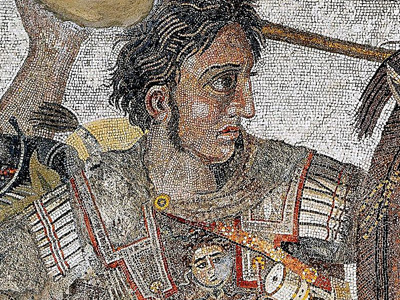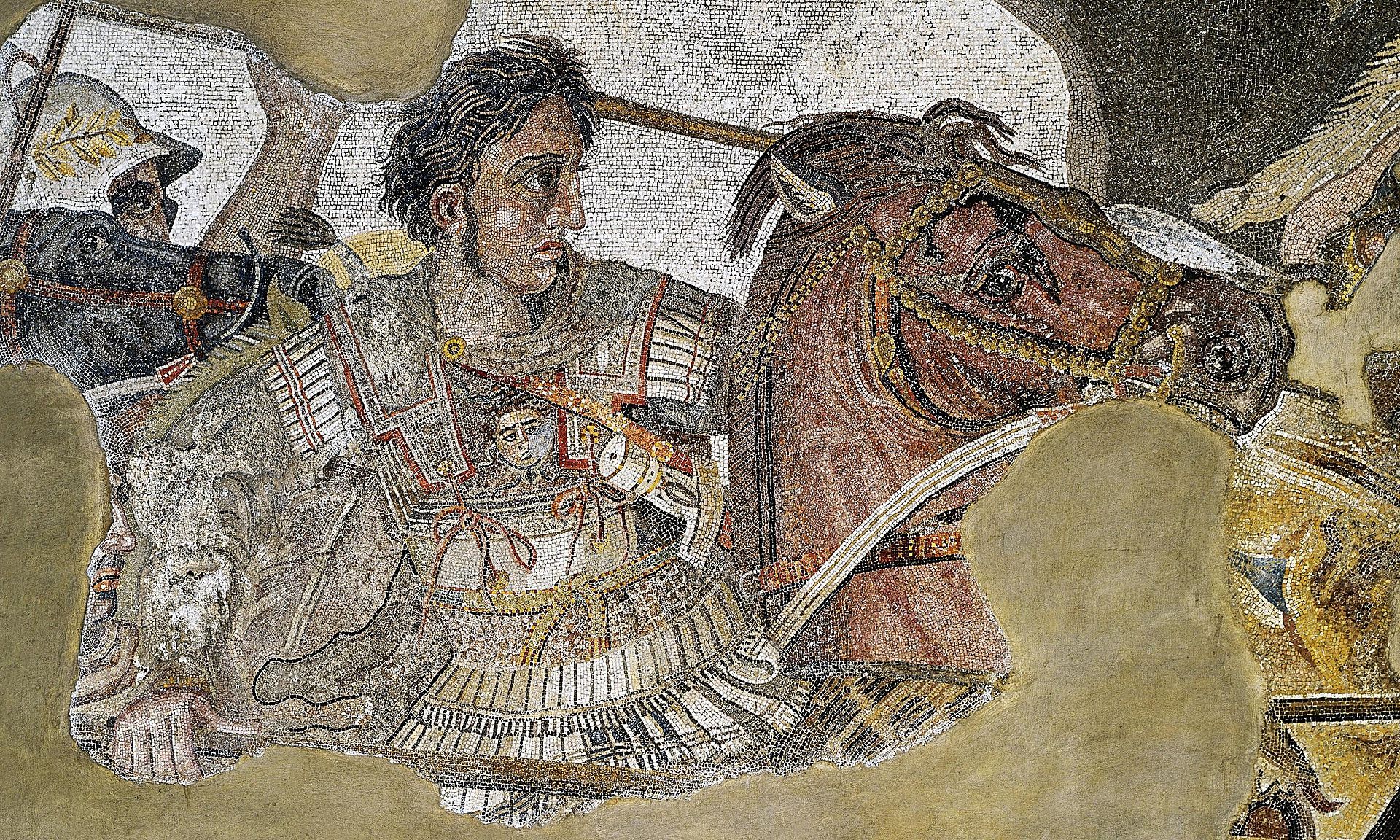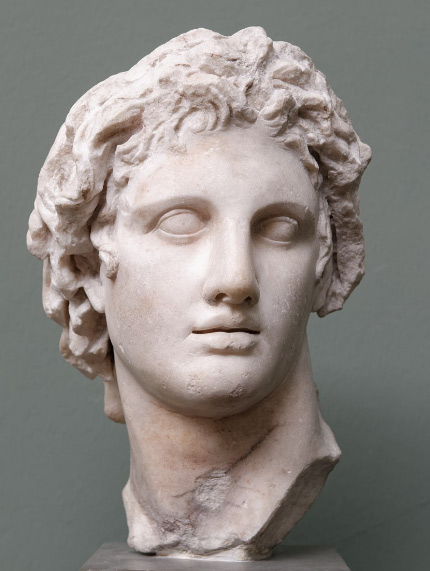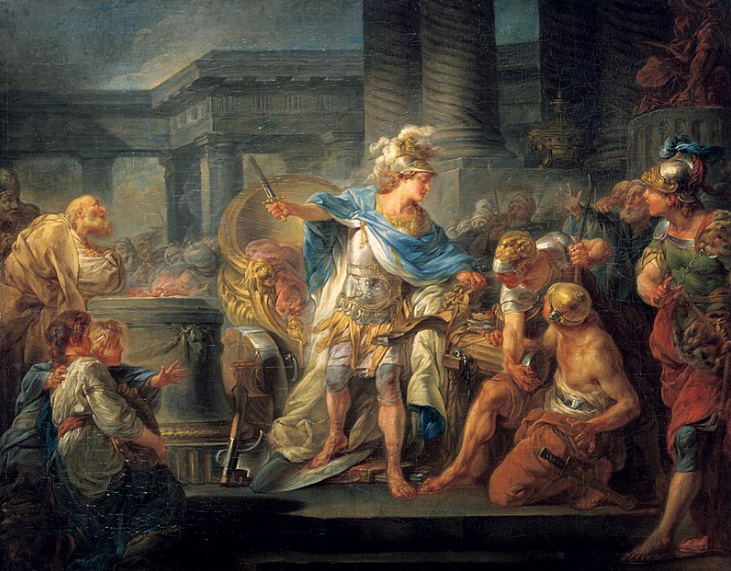Alexander the Great (356-323 BC)
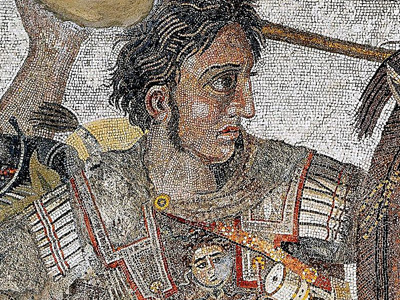
Character
Generalship
Alexander earned the epithet "the Great" due to his unparalleled success as a military commander. He never lost a battle, despite typically being outnumbered. This was due to use of terrain, phalanx and cavalry tactics, bold strategy, and the fierce loyalty of his troops. The Macedonian phalanx, armed with the sarissa, a spear 6 metres (20 ft) long, had been developed and perfected by Philip II through rigorous training, and Alexander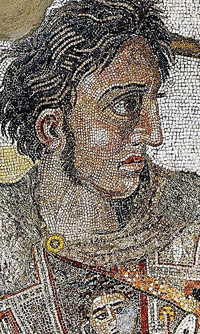 Alexander the Great (356-323 BC), was a king of the Ancient Greek kingdom of Macedon. He spent most of his ruling years on an unprecedented military campaign through Asia and northeast Africa. He was undefeated in battle and is widely considered one of history's most successful military commanders. Alexander the Great » used its speed and maneuverability to great effect against larger but more disparate Persian forces. Alexander also recognized the potential for disunity among his diverse army, which employed various languages and weapons. He overcame this by being personally involved in battle, in the manner of a Macedonian king.
Alexander the Great (356-323 BC), was a king of the Ancient Greek kingdom of Macedon. He spent most of his ruling years on an unprecedented military campaign through Asia and northeast Africa. He was undefeated in battle and is widely considered one of history's most successful military commanders. Alexander the Great » used its speed and maneuverability to great effect against larger but more disparate Persian forces. Alexander also recognized the potential for disunity among his diverse army, which employed various languages and weapons. He overcame this by being personally involved in battle, in the manner of a Macedonian king.
In his first battle in Asia, at Granicus, Alexander used only a small part of his forces, perhaps 13,000 infantry with 5,000 cavalry, against a much larger Persian force of 40,000. Alexander placed the phalanx at the center and cavalry and archers on the wings, so that his line matched the length of the Persian cavalry line, about 3 km (1.86 mi). By contrast, the Persian infantry was stationed behind its cavalry. This ensured that Alexander would not be outflanked, while his phalanx, armed with long pikes, had a considerable advantage over the Persian's scimitars and javelins. Macedonian losses were negligible compared to those of the Persians.
At Issus in 333 BC, his first confrontation with Darius, he used the same deployment, and again the central phalanx pushed through. Alexander personally led the charge in the center, routing the opposing army. At the decisive encounter with Darius at Gaugamela, Darius equipped his chariots with scythes on the wheels to break up the phalanx and equipped his cavalry with pikes. Alexander arranged a double phalanx, with the center advancing at an angle, parting when the chariots bore down and then reforming. The advance was successful and broke Darius' center, causing the latter to flee once again.
When faced with opponents who used unfamiliar fighting techniques, such as in Central Asia and India, Alexander adapted his forces to his opponents' style. Thus, in Bactria and Sogdiana, Alexander successfully used his javelin throwers and archers to prevent outflanking movements, while massing his cavalry at the center. In India, confronted by Porus' elephant corps, the Macedonians opened their ranks to envelop the elephants and used their sarissas to strike upwards and dislodge the elephants' handlers.
Personality
Some of Alexander's strongest personality traits formed in response to his parents. His mother had huge ambitions, and encouraged him to believe it was his destiny to conquer the Persian Empire. Olympias' influence instilled a sense of destiny in him, and Plutarch tells us that his ambition "kept his spirit serious and lofty in advance of his years". However, his father Philip was Alexander's most immediate and influential role model, as the young Alexander watched him campaign practically every year, winning victory after victory while ignoring severe wounds. Alexander's relationship with his father forged the competitive side of his personality; he had a need to out-do his father, illustrated by his reckless behaviour in battle. While Alexander worried that his father would leave him "no great or brilliant achievement to be displayed to the world", he also downplayed his father's achievements to his companions.
According to Plutarch, among Alexander's traits were a violent temper and rash, impulsive nature, which undoubtedly contributed to some of his decisions. Although Alexander was stubborn and did not respond well to orders from his father, he was open to reasoned debate. He had a calmer side—perceptive, logical, and calculating. He had a great desire for knowledge, a love for philosophy, and was an avid reader. This was no doubt in part due to Aristotle's tutelage; Alexander was intelligent and quick to learn. His intelligent and rational side was amply demonstrated by his ability and success as a general. He had great self-restraint in "pleasures of the body", in contrast with his lack of self control with alcohol.
Alexander was erudite and patronized both arts and sciences. However, he had little interest in sports or the Olympic games (unlike his father), seeking only the Homeric ideals of honour (timê) and glory (kudos). He had great charisma and force of personality, characteristics which made him a great leader. His unique abilities were further demonstrated by the inability of any of his generals to unite Macedonia and retain the Empire after his death – only Alexander had the ability to do so.
During his final years, and especially after the death of Hephaestion, Alexander began to exhibit signs of megalomania and paranoia. His extraordinary achievements, coupled with his own ineffable sense of destiny and the flattery of his companions, may have combined to produce this effect. His delusions of grandeur are readily visible in his will and in his desire to conquer the world, in as much as he is by various sources described as having boundless ambition, an epithet, the meaning of which, has descended into an historical cliché.
He appears to have believed himself a deity, or at least sought to deify himself. Olympias always insisted to him that he was the son of Zeus, a theory apparently confirmed to him by the oracle of Amun at Siwa. He began to identify himself as the son of Zeus-Ammon. Alexander adopted elements of Persian dress and customs at court, notably proskynesis, a practice of which Macedonians disapproved, and were loath to perform. This behaviour cost him the sympathies of many of his countrymen. However, Alexander also was a pragmatic ruler who understood the difficulties of ruling culturally disparate peoples, many of whom lived in kingdoms where the king was divine. Thus, rather than megalomania, his behaviour may simply have been a practical attempt at strengthening his rule and keeping his empire together.
HISTORY

RESOURCES
This article uses material from the Wikipedia article "Alexander the Great", which is released under the Creative Commons Attribution-Share-Alike License 3.0.
© Stories Preschool. All Rights Reserved.
